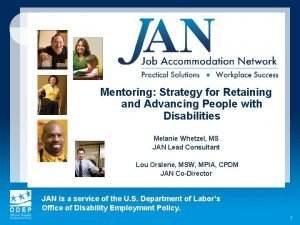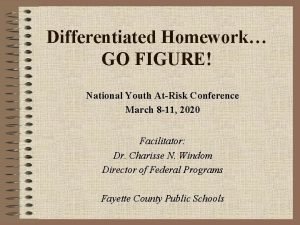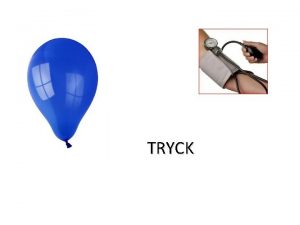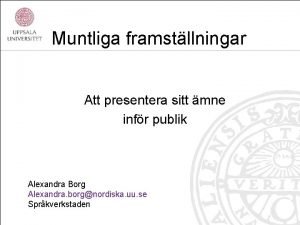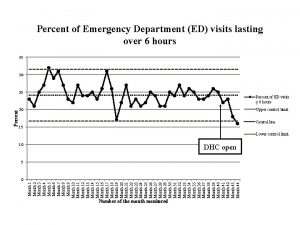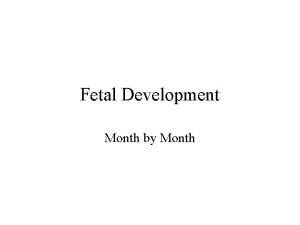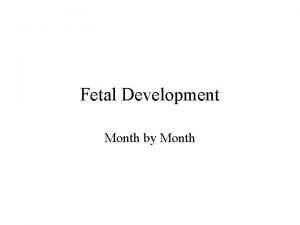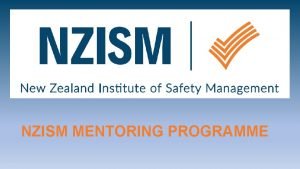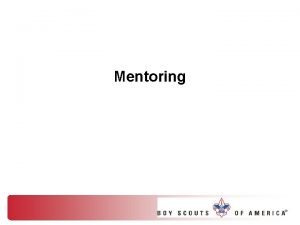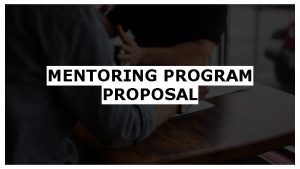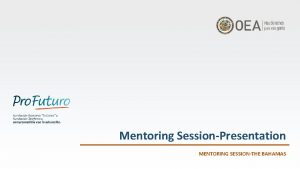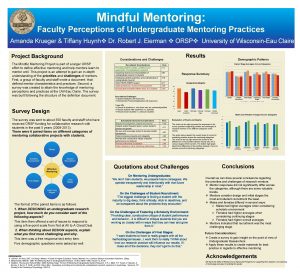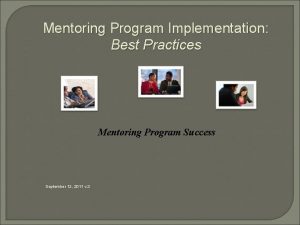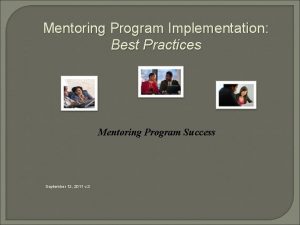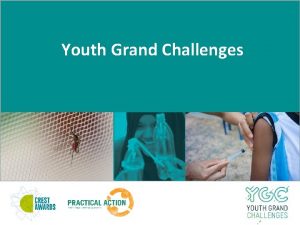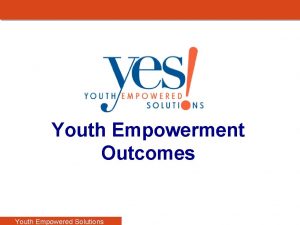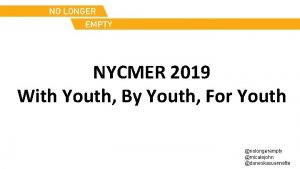National Mentoring Month Innovative Practices for Youth Mentoring




































- Slides: 36

National Mentoring Month: Innovative Practices for Youth Mentoring Webinar Wednesday, January 23, 2019 Sadiq Ali | December Le. Texier

Presenters: December Le. Texier, IYI Sadiq Ali, Maryland MENTOR

National Mentoring Month 2019

National Mentoring Month 2019

Who is IYI? Our mission is to improve the lives of all Indiana children by strengthening and connecting the people, organizations, and communities that are focused on kids and youth. We Do It For The Kids We Create Change We Work Together We Empower Our Partners And Peers • We Advocate For Others • • Championing Kids. Strengthening Communities.

Here to support you Professional Education …Provide opportunities for continued education and training. Impact and Data Solutions Organizational Capacity Engagement and Advocacy …Support programs, policies and innovation by providing access to critical data. …Share best practices so that all can benefit from the collective wisdom of IYI, our partners, and peers. . Use our voice to amplify the voices of others to inspire action that will create measurable and positive change.

Objectives q Introduce mentoring best practices (reintroduce to some!) q Explore old & new (emerging) mentoring models q Examine Critical Mentoring overview q Share practical resources to support programs in innovative practices

Poll # 1: In which state do you serve youth and families? q Indiana q Maryland q Other

Why this focus? Children thrive when they are surrounded by stable, consistent and meaningful relationships.

What does innovation mean to you?

What does innovation mean to you? According to Merriam-Webster, innovation is defined as: 1. The introduction of something new 2. A new idea, method, or device: novelty But what about… 3. Using something ‘old’ in a new way 4. Using a creative approach to implementing something already known; i. e. combining elements, remixing pieces, adding and subtracting

Poll # 2: How long have you been in the mentoring field? q Brand new (0 -1 year) q Some experience (2 -5 years) q Master Yoda (5+ years)

Something (not so) old! Elements of Effective Practice for Mentoring™ q Research-informed and practitionerapproved Standards for creating and sustaining quality youth mentoring programs and consequently, impactful mentoring relationships. q The six evidence-based Standards are intended to be applicable across almost every type of youth mentoring program. q Each Standard includes Benchmarks and Enhancements

Standard 1: Recruitment STANDARD: A program should work to recruit appropriate mentees and mentors by realistically describing the program’s aims and expected outcomes § § What are the benefits and challenges of this type of relationship What is the time commitment involved What are the mentor and mentee responsibilities (and family roles and responsibilities during process) What can mentors and mentees expect from the program ENHANCEMENT: A program has a written statement outlining eligibility requirements for mentors and mentees

Standard 2: Screening STANDARD: A program should screen mentors and mentees to determine whether they have the time, level of commitment and interest to effectively participate in the program § § § Complete a written application and agree to the minimum time commitments of your program Participate in a face-to-face interview with program staff and young person, if possible Criminal and other background and reference checks performed ENHANCEMENT: A program utilizes national, fingerprintbased FBI background checks to screen mentors.

Standard 3: Training STANDARD: A program should train prospective mentors in the basic knowledge and skills needed to build an effective mentoring relationship § At least 2 hours and occur pre-match § Training topics should include: program rules, expectations, the role of a mentor, how to develop and sustain a mentoring relationship and how to handle challenges and crisis § Outline what an effective match closure looks like and how the mentor will be supported throughout the mentoring relationship ENHANCEMENT: A program provides more than 2 hours of prematch training and covers additional topics such as cultural competency and youth development.

Standard 4: Matching & Initiating STANDARD: A program should match mentors and mentees along dimensions likely to increase the odds that mentoring relationships will endure § Consider program mission and goals, as well as characteristics, interests, preferences, and personality of the mentors and mentees when making matches § Arrange and document the initial meeting between the mentor and mentee ENHANCEMENT: Program staff should be present at the initial meeting of the mentor and mentee

Standard 5: Monitoring & Support STANDARD: A program should monitor the mentoring relationship milestones and support mentors with ongoing advice, problem-solving and training opportunities for the duration of the match § Contact the mentor and mentee at least twice a month in the first month of the match and then at least once a month thereafter § Document information gathered on the match relationship including: date and length of meetings, what occurred and how the mentor and mentee feel about the progress of the relationship § Provide additional post-match resources such as in person and web based trainings and websites that may prove beneficial ENHANCEMENT: Program has quarterly contact with mentee’s parent/guardian. Also, the program hosts one or more group match activities and there is a system in place to thank and recognize mentors for their service

Standard 6: Closure STANDARD: A program should facilitate bringing the match to closure in a way that affirms the contributions of both the mentor and the mentee and offers individuals the opportunity to assess the experience § System in place to manage anticipated and unanticipated match closures and rematches § Conduct and document an exit interview with mentors and mentees ENHANCEMENT: Program has a system in place that allows for a match to continue for a second or subsequent year. The program outlines the terms of the match closure and polices for mentor/mentee contact after the match ends.

Poll # 3: How familiar were you with the Elements of Effective Practice for Mentoring™? q A tremendous amount and we use them regularly. q A considerable amount q A small amount q Not at all

Mentoring Models q q q q One to one Group Team Sports-based e-Mentoring School based School integrated How can we use these models innovatively? Based on pros of each model… q q q Project-based Peer Near peer Youth-initiated Workplace based Hybrids

Critical Mentoring Overview q A framework that embeds critical race theory into mentoring q Openly considers race, ethnicity, class, gender, and sexuality in the program design and mentoring relationship. q “Critical Mentoring: A Practical Guide” presents a youth-centric framework for mentoring in which mentors and youth partner not to change youth but to focus on the assets youth already possess to elevate their voice, power, and choice. ¹

Traditional vs Critical Mentoring Themes Traditional Mentoring Framework Critical Mentoring Framework Power dynamic mostly Ignored; one-sided, adult -centric; top-down; “wise old mentor” to silly young mentee Shared; seen as equals in the relationship; both have say in activities and overall path of relationship Approach Tends to be more deficits focused Assets-based; acknowledging assets first then building on them Cultural lens Cultural blindness abounds; little to no emphasis on cultural as a major determinant of relationship durability; ignorant of structural/systemic racism Culturally humble approach; focuses on uncovering/learning about youth’s culture; share own culture; acknowledge/validate youth’s experiences Matching Mentor/organization centric; little emphasis on racially matched pairs Youth initiated and/or youthcentric; takes desired characteristics of youth as focal point, including racial matching

Critical Mentoring Overview Examples of Critical Mentoring in Practice q Create youth advisory boards for your programs (or youth positions on full board) q Dedicate staff positions to youth q Allow mentees (protegès) to select their mentors q “If proteges and [or] families request matching according to a type of race, ethnicity and culture preference, programs should accommodate. ” – p. 10 q Have young people design and/or co-facilitate trainings for staff & mentors q Embrace the intersectionality of our young people & staff! Consider youth voice & culturally relevant mentoring practices as paramount to the success of your program!

Technology Innovation in Mentoring

Questions / Comments?

Data Brief: Insights from the Field Issues faced by Children and Youth Quality Mentoring Released January 2019 Data about: • Impacts of the quality mentoring • Why equity in youth mentoring is needed • Supports IYI. org/data

Upholding the Covenant: State of Mentoring in Maryland 2018 Recap of Statewide Listening Tour Released October 2018 Data about: • Mentoring activity throughout MD • County/regional profiles • Recommendations for the mentoring field in MD marylandmentor. net/utc 201 8

Program Resources q Elements of Effective Practice for Mentoring (EEP) q EEP Supplement: Guide to Mentoring Boys & Young Men of Color q Critical Mentoring q National Quality Mentoring System (NQMS) q FREE Technical Assistance via NMRC q mentoring. org q iyi. org q marylandmentor. net

Are you recruiting new mentors?

How do I register my program?

Webinars Convenient, online professional development. • Grounded in latest research and innovative practices • Focus on Youth Development and College and Career Upcoming Topics February 20 When Scholarships Are Not Enough - Helping Low-Income Students Financially Persist in Postsecondary Register Today! IYI. org/webinar February 27 State of the Child: The Well-being of Indiana Youth March 20 Social Emotional Resilience 2. 0: When Stress Becomes Toxic – Helping Youth Overcome the Impact of Trauma March 27 Here to Help: Responding to Youth Depression

Indiana KIDS COUNT® Data Book Premiere data resource on Hoosier Youth. • Developed with you in mind • Go-to resources for the latest research and information • Published annually • Provides in-depth profile on child well-being in four key areas • 2019 Data Book Snapshot available now! IYI. org/data

SAVE the DATE! 2019 College & Career Conference IYI. org

Newsletters Be the first to receive the latest updates and opportunities. Weekly Update: A weekly email newsletter with the latest youth development trends, IYI program news and event updates. Programs: Get the latest KIDS COUNT Data, information from the Virginia Beall Ball Library, and other announcements from IYI programs. Professional Development: Never miss an announcement about IYI webinars, the Because KIDS COUNT Conference, Youth Worker Cafes, the Postsecondary Counseling Institute and other great opportunities. Be sure to sign up at www. iyi. org/newsletters

Stay Connected Let’s connect to improve the lives of youth! www. facebook. com/Indianayouth @Maryland. MENTOR www. twitter. com/Indiana_Youth @indianayouth @Indiana_Youth @Maryland. MENTOR
 Nisan abib
Nisan abib Sidereal month vs synodic month
Sidereal month vs synodic month Mentoring best practices
Mentoring best practices National council of youth sports
National council of youth sports National youth assessment study
National youth assessment study National study of youth and religion
National study of youth and religion National youth at risk conference
National youth at risk conference American red cross youth
American red cross youth Kontinuitetshantering i praktiken
Kontinuitetshantering i praktiken Novell typiska drag
Novell typiska drag Tack för att ni lyssnade bild
Tack för att ni lyssnade bild Returpilarna
Returpilarna Varför kallas perioden 1918-1939 för mellankrigstiden?
Varför kallas perioden 1918-1939 för mellankrigstiden? En lathund för arbete med kontinuitetshantering
En lathund för arbete med kontinuitetshantering Adressändring ideell förening
Adressändring ideell förening Tidböcker
Tidböcker A gastrica
A gastrica Densitet vatten
Densitet vatten Datorkunskap för nybörjare
Datorkunskap för nybörjare Stig kerman
Stig kerman Debattartikel struktur
Debattartikel struktur Magnetsjukhus
Magnetsjukhus Nyckelkompetenser för livslångt lärande
Nyckelkompetenser för livslångt lärande Påbyggnader för flakfordon
Påbyggnader för flakfordon Arkimedes princip formel
Arkimedes princip formel Offentlig förvaltning
Offentlig förvaltning Jag har gått inunder stjärnor text
Jag har gått inunder stjärnor text Presentera för publik crossboss
Presentera för publik crossboss Argument för teckenspråk som minoritetsspråk
Argument för teckenspråk som minoritetsspråk Bat mitza
Bat mitza Klassificeringsstruktur för kommunala verksamheter
Klassificeringsstruktur för kommunala verksamheter Luftstrupen för medicinare
Luftstrupen för medicinare Bästa kameran för astrofoto
Bästa kameran för astrofoto Centrum för kunskap och säkerhet
Centrum för kunskap och säkerhet Verifikationsplan
Verifikationsplan Bra mat för unga idrottare
Bra mat för unga idrottare Verktyg för automatisering av utbetalningar
Verktyg för automatisering av utbetalningar


